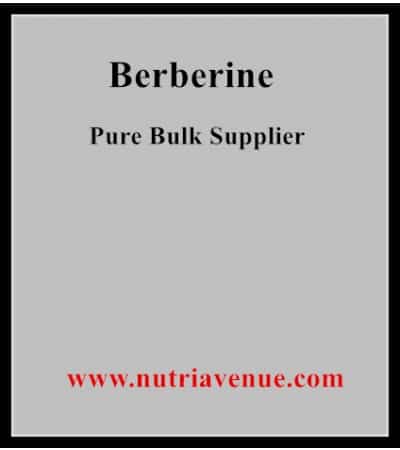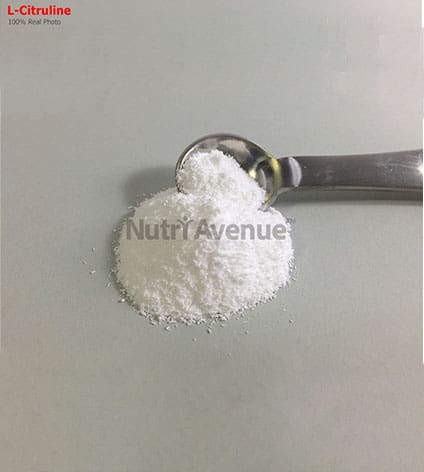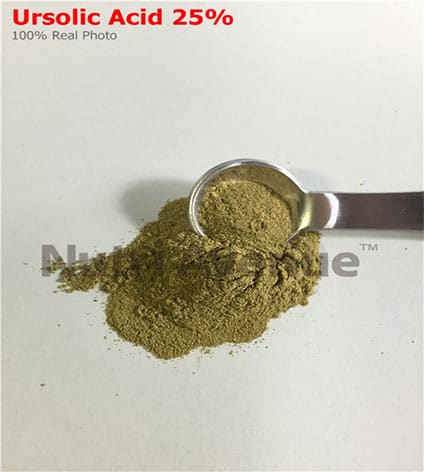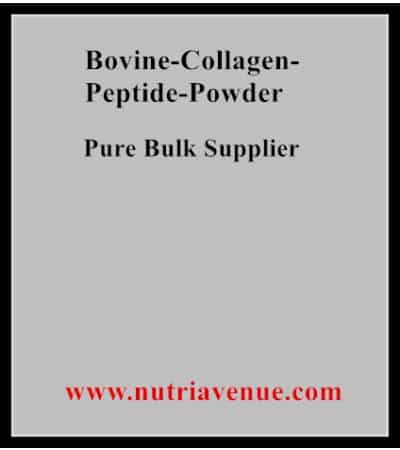What Is Berberine?
Berberine is a natural alkaloid compound found in various plants, including goldenseal (Hydrastis canadensis), barberry (Berberis vulgaris), and Oregon grape (Mahonia aquifolium). It has a long history of use in traditional Chinese and Ayurvedic medicine for its potential health benefits. Berberine has gained significant attention recently due to its broad range of biological effects and potential therapeutic applications.
Berberine is known for its antimicrobial, anti-inflammatory, and antioxidant properties. It has been studied for its potential benefits in various health conditions, including metabolic disorders, cardiovascular health, gastrointestinal health, and immune function. Berberine has also been investigated for its possible effects on blood sugar regulation, lipid metabolism, and weight management.
As a dietary supplement ingredient, Berberine is available in various forms, including capsules, tablets, and powders. It is often used as an herbal remedy or incorporated into formulations targeting specific health concerns.
What Is Berberine HCL?
Berberine Hydrochloride, simply called berberine HCL, is a form of Berberine. It has been combined with hydrochloric acid to enhance its stability and absorption in the body. It is the most commonly available and widely used Berberine form in dietary supplements and medications.
This ingredient offers the same health benefits as regular Berberine but with improved bioavailability. Hydrochloric acid helps facilitate better absorption in the digestive system, allowing for increased uptake and utilization of Berberine by the body.
Berberine HCL is typically found in capsule or tablet form.
Common Bulk Berberine HCL Specifications
Here are several common specifications in the market.
- Berberine HCL powder is 97% pure
- Berberine HCL 98% pure powder
| Type | Plant extract |
| Appearance | Fine powder |
| Content | ≥ 95% |
| Purity | ≥ 98% |
| Particle Size | 80 mesh or as per customer requirement |
| Certifications | GMP, ISO 9001, ISO 22000 |
| Other Ingredient | None |
| Solvent | Water |
| Water Content | ≤ 5% |
| Test Method | HPLC, UV-VIS |
| MOQ (minimum order quantity) | 1kg |
| Sample | Available (10-20g/bag) |
| OEM Service | Available, such as capsules, tablets, pills, etc. |
| ODM Service | Available |
| Private Label | Available |
| Contract Manufacturing | Available |
Where Does Berberine Powder Extract From?
Berberine powder is extracted from various plant species’ roots, rhizomes (underground stems), or bark. The specific plant sources of berberine extraction include as below.
- Goldenseal (Hydrastis Canadensis): Goldenseal is a herbaceous perennial plant native to North America. The roots and rhizomes of goldenseal contain significant amounts of Berberine.
- Barberry (Berberis vulgaris): Barberry is a shrub native to Europe, Asia, and North Africa. The bark, roots, and stem of barberry contain Berberine.
- Oregon grape (Mahonia aquifolium): Oregon grape is an evergreen shrub native to western North America. The roots and rhizomes of Oregon grapes contain Berberine.
- Chinese goldthread (Coptis chinensis): Chinese goldthread is a perennial herb native to China and other parts of Asia. The rhizomes of Chinese goldthread are rich in Berberine.
What Is Berberine Powder Manufacturing Process?
Step 1: High-quality plant materials known to contain Berberine, such as goldenseal, barberry, or Oregon grape, are selected as the raw materials for berberine extraction.
Step 2: The plant material, typically the roots, rhizomes, or bark, is processed to release Berberine. Different extraction methods, such as solvent extraction or steam distillation, separate Berberine from the rest of the plant components.
Step 3: The resulting liquid extract containing Berberine is filtered to remove solid particles and impurities, ensuring a cleaner solution.
Step 4: The filtered extract undergoes a concentration process to remove excess moisture and increase the berberine content. Techniques like evaporation or spray drying may be employed to achieve the desired concentration.
Step 5: The concentrated berberine extract may undergo purification to remove impurities and obtain a higher purity level. Techniques such as chromatography or crystallization can further refine and isolate Berberine.
Step 6: The purified berberine extract is subjected to drying methods to remove any remaining moisture and convert it into a dry, powdered form. Techniques like spray drying or freeze drying are commonly employed to preserve the integrity of the compound during the drying process.
Step 7: The final berberine powder undergoes rigorous testing to ensure its quality, purity, and potency. Various analytical techniques, including HPLC, may be used to verify the composition and the product’s specifications.
Step 8: The tested and approved berberine powder is packaged in appropriate containers or materials.
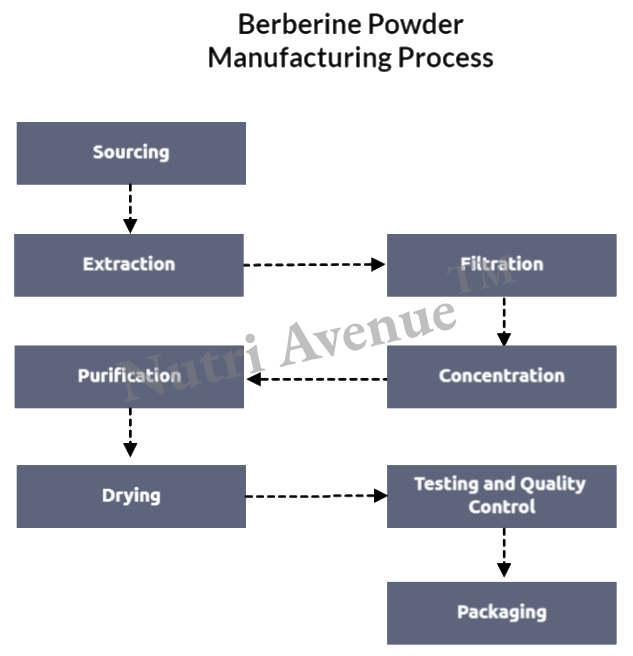
More Information
What is Berberine used for?
This ingredient can use for various areas, like blood sugar regulation, weight management, digestive health, etc. And there are studies to prove these healthy benefits of berberine. For example,
- The efficacy of Berberine in modulating blood glucose levels through enhancing insulin sensitivity and glucose metabolism has been demonstrated.
- Berberine has been found to have a positive impact on lipid metabolism, including reducing total cholesterol, LDL cholesterol, and triglyceride levels.
- It may aid in weight management by helping to control appetite, promoting fat loss, and improving metabolic function.
- It has been studied for its potential benefits in addressing gastrointestinal infections and gut dysbiosis.
- Berberine has anti-inflammatory effects, which may benefit various inflammatory conditions, including arthritis, inflammatory bowel disease, and skin disorders.
- Berberine has been found to enhance cardiovascular well-being through its ability to strengthen blood vessel functionality, mitigate inflammation, and regulate risk factors such as hypertension and hypercholesterolemia.
Who is the top bulk Berberine supplier?
Nutri Avenue, a professional raw ingredients supplier, absolutely offers Berberine and Berberine HCL. We choose the best plant source to extract the purest berberine powder. And samples are tested by 3rd-party to sure quality. Welcome to get a free quote.
FAQs
Berberine HCL is a form of Berberine that has been combined with hydrochloric acid to enhance its stability and absorption. Berberine and Berberine HCL offer similar health benefits, but the HCL form is more commonly available and has improved bioavailability.
Yes, Berberine HCL is generally considered safe as a dietary supplement ingredient. However, it is advisable to follow the recommended dosage and consult with a healthcare professional, especially if you have any underlying medical conditions or are taking other medications.
Yes, Berberine HCL is water-soluble and can dissolve easily in water-based solutions. This characteristic allows for its incorporation into various supplements and formulations.

